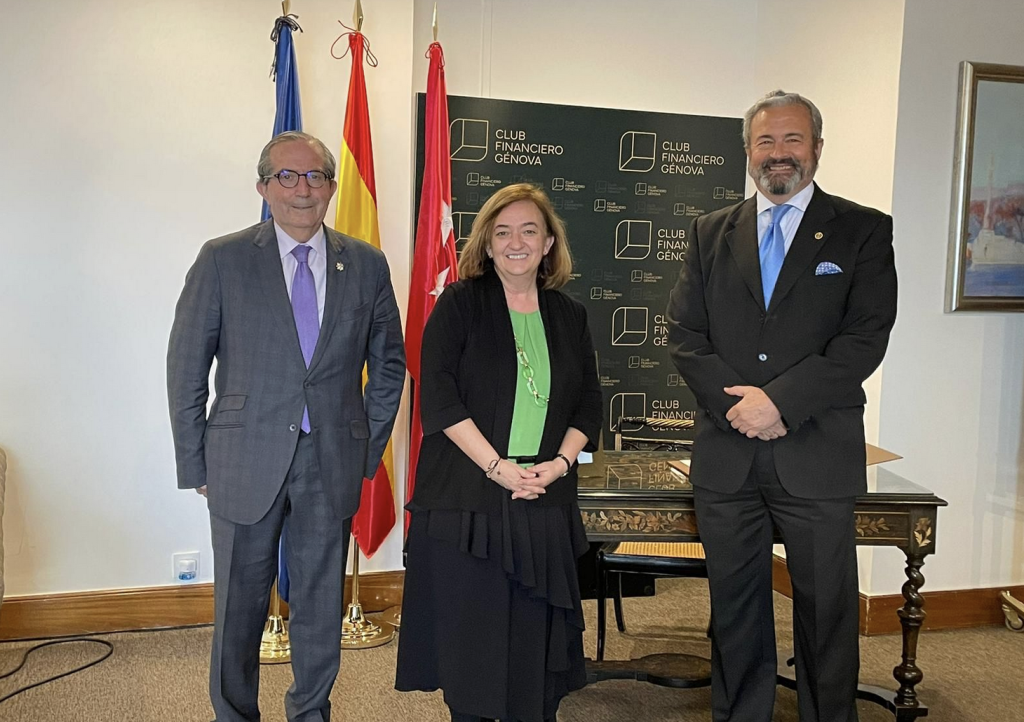
The President of the Independent Authority for Fiscal Responsibility (AIReF), Cristina Herrero, took part today in the 16th Lunch of the Industrial Engineering Association, highlighting the role played by AIReF in the Spanish economy. In her words, AIReF was and is a necessary institution that brings great added value to both public managers and society as a whole. In fact, AIReF has analytical potential and in-depth knowledge of the national situation that will be very useful in the implementation of the new European fiscal governance framework.
The President stressed that AIReF is a unique institution that provides objective analysis under the highest standards of independence, transparency and accountability. AIReF does not issue value judgments, it puts data on the table that warn of possible risks to public finances and provides evidence for informed decision-making.
According to Cristina Herrero, AIReF is a necessary institution for two reasons: because of the type of functions it performs and the type of institution it has been set up as. AIReF continuously and independently analyses the budget cycle and monitors compliance with fiscal rules. The creation in Spain of an institution such as AIReF was a substantial and novel change since, for the first time, the annual budget planning was subject to external oversight that could provide risk alerts. In addition, AIReF incorporates a medium-term vision, since it must oversee the sustainability of public finances. This means that it must report on the Stability Programme (SPU), the main medium-term budgetary planning document, and it has the opportunity to issue opinions on the long-term sustainability of public finances within the framework of the powers granted to it by the law on its creation.
Providing expertise and analysis
In this regard, Cristina Herrero stated that the reform of the Stability and Growth Pact, which has just been agreed, establishes fiscal sustainability and economic growth as the main pillars, and obliges Member States to submit medium-term fiscal plans. In this regard, she highlighted that AIReF is an independent institution able to provide its experience and analysis for the assessment of medium- and long-term forecasts, as well as its contribution to sustainability. Moreover, the methodologies for applying this new framework are not straightforward and AIReF is able to provide input to the analysis and help assess the contribution of the plans.
AIReF also has in-depth knowledge of the national situation, which is another asset for understanding the feasibility of the trajectories that the Commission may propose. Unlike other institutions that focus on a particular sector or authority, AIReF performs its functions in respect of the entire General Government.
It is precisely this ascendancy over all public authorities, combined with the institution’s capacity for analysis, that explains why AIReF has seen its scope of action expand over recent years. The institution was initially created as a fiscal supervisor, but today it also carries out an important task of evaluating the effectiveness and efficiency of public policies. AIReF has become a key player in evaluation, a function that is a natural complement to its supervisory tasks.
In addition, AIReF was and is necessary because of the type of institution that has been set up. It is a unique institution, with a strong legal basis that ensures its independence and functional autonomy. It is financed with a supervisory fee paid by all General Government (GG) authorities, it has a single-person management format with demanding appointment requirements, all GG authorities are subject to the duty of collaboration provided for in the Law and it has termination and disqualification rules. According to the President, there was a need for an institution with these characteristics which also carries out its work under the highest standards of transparency.
The importance of transparency
According to Cristina Herrero, AIReF works daily to be an example of transparency and make its analyses, data and methodologies available to society. It currently has monitor and interactive tools that cover various areas of analysis: information from territorial authorities, monitoring of recommendations and evaluation proposals, and products focused on the mission of ensuring the sustainability of public finances, such as the debt monitor and the pension expenditure simulator. In addition, it always publishes its methodologies and hypotheses. In her view, this exercise of transparency reduces information asymmetry, allows the accountability of AIReF itself and guarantees the performance of its functions with independence and absence of bias.
The President concluded her speech by stressing that AIReF is a much-needed institution in the Spanish economy and that it provides great added value and has a capacity for analysis and fiscal supervision that transcends fiscal rules. “Our creation was not easy and our legitimacy has sometimes been questioned. But in these 10 years, I think we have proven our usefulness and potential,” she concluded.






